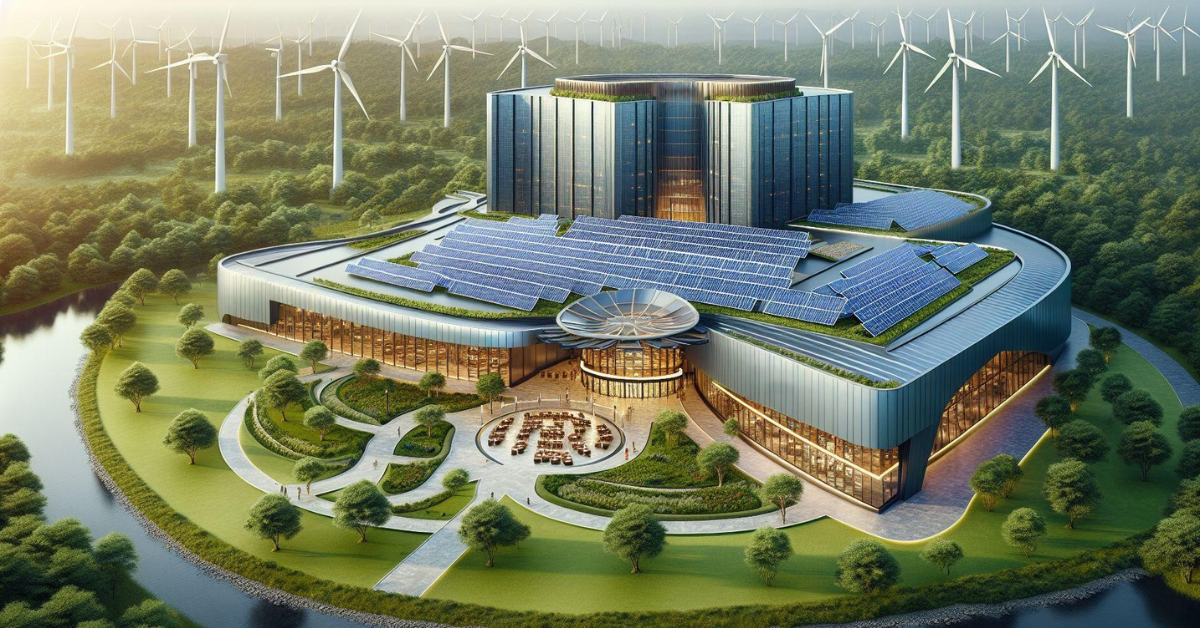
Eco-Friendly Travel Reshapes the Casino Industry

*Collaborative Post
As the world becomes increasingly aware of environmental issues, the concept of eco-friendly travel has gained significant traction. Travelers are now more conscious of their carbon footprint, seeking sustainable options that align with their values. This shift in mindset has extended to the entertainment sector, where traditional venues like casinos are re-evaluating their operations to meet the growing demand for sustainability.
Casinos have long been associated with bright lights, bustling activity, and significant energy consumption. However, a new wave of eco-consciousness is sweeping through the industry. Forward-thinking casinos are implementing green initiatives to reduce their environmental impact, appealing to tourists who prioritize sustainability. This transformation is not just about reducing waste or conserving energy; it’s about reimagining the casino experience to integrate eco-friendly practices seamlessly.
But why should casinos, of all places, embrace sustainability? The answer lies in the evolving expectations of the modern traveler. As more people prioritize eco-friendly options, casinos have an opportunity to redefine themselves as leaders in sustainable entertainment. This article explores how casinos are adopting green practices and what it means for the future of eco-friendly travel.
Green initiatives in modern casinos
In recent years, casinos have begun to adopt a range of green initiatives aimed at reducing their environmental footprint. Energy conservation is at the forefront of these efforts, with many casinos investing in energy-efficient lighting, heating, and cooling systems. These changes not only reduce energy consumption but also lower operational costs over time.
Waste reduction is another critical area of focus. Modern casinos are implementing comprehensive recycling programs and minimizing single-use plastics. Some have even introduced composting systems to manage organic waste, turning it into valuable resources for local communities.
Renewable energy sources are also being embraced. Solar panels, wind turbines, and geothermal systems are becoming more common in casino operations, providing clean energy and reducing reliance on fossil fuels. By investing in renewable energy, casinos can significantly cut their carbon emissions, contributing to a healthier planet.
Technology plays a vital role in enhancing sustainability efforts within the casino sector. Smart building systems, for instance, allow for real-time monitoring and optimization of energy usage. This technology ensures that resources are used efficiently, minimizing waste and maximizing performance.
A 2021 report by the American Gaming Association highlighted these initiatives, noting that the industry is increasingly committed to sustainability. The report emphasized the importance of adopting eco-friendly practices, not only for environmental reasons but also for maintaining a competitive edge in the market.
Case studies: Leading eco-friendly casinos
Several casinos have emerged as leaders in sustainability, setting examples for others to follow. One notable case is the MGM Resorts International, which has implemented a comprehensive sustainability strategy across its properties. The company focuses on energy efficiency, water conservation, and waste reduction, achieving significant reductions in its environmental impact.
Another example is the Sands Casino Resort in Bethlehem, Pennsylvania. This casino has been recognized for its innovative green building design, which includes energy-efficient lighting, water-saving fixtures, and a state-of-the-art HVAC system. The resort also engages with the local community through educational programs and partnerships that promote environmental awareness.
In Las Vegas, the Aria Resort and Casino stands out for its commitment to sustainability. The resort has earned LEED Gold certification for its green building practices, which include using recycled materials, efficient water management systems, and advanced energy monitoring technology. Aria’s efforts demonstrate how sustainability can be integrated into every aspect of a casino’s operations.
These case studies illustrate that sustainable practices are not only feasible but also beneficial for casinos. By adopting eco-friendly measures, these establishments are setting a standard for the industry, showing that entertainment and environmental responsibility can coexist.
Challenges and opportunities in sustainable gaming
Despite the progress made, casinos face several challenges in implementing sustainable practices. One of the primary obstacles is cost. Investing in green technologies and infrastructure can be expensive, and not all casinos have the financial resources to make such changes. Additionally, regulatory hurdles can complicate efforts to adopt eco-friendly measures, as compliance with environmental standards varies across regions.
However, these challenges also present opportunities. By embracing sustainability, casinos can enhance their reputation and attract a growing segment of eco-conscious travelers. Customers are increasingly loyal to brands that align with their values, and casinos that prioritize sustainability can build strong relationships with this audience.
Moreover, sustainable practices can lead to cost savings in the long run. Energy-efficient systems and renewable energy sources reduce operational expenses, while waste reduction strategies minimize disposal costs. These financial benefits, coupled with the positive impact on the environment, make sustainability a worthwhile investment for casinos.
As the industry continues to evolve, the influence of sustainable gaming is expected to grow. Casinos that overcome these challenges and seize the opportunities presented by eco-friendly practices will likely lead the way in shaping the future of the sector.
*This is a collaborative post. For further information please refer to my disclosure page.




